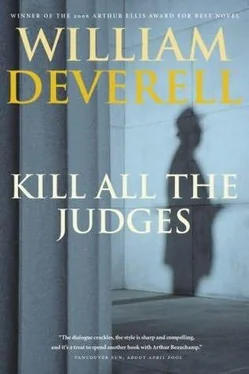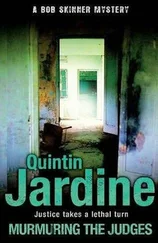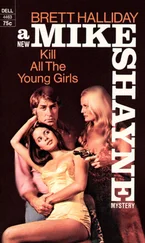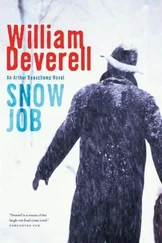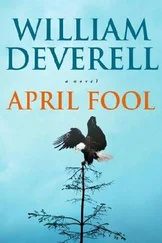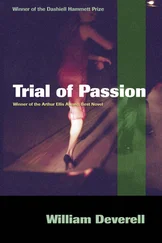William Deverell - Kill All the Judges
Здесь есть возможность читать онлайн «William Deverell - Kill All the Judges» весь текст электронной книги совершенно бесплатно (целиком полную версию без сокращений). В некоторых случаях можно слушать аудио, скачать через торрент в формате fb2 и присутствует краткое содержание. Год выпуска: 2008, ISBN: 2008, Издательство: Random House LLC, Жанр: Криминальный детектив, на английском языке. Описание произведения, (предисловие) а так же отзывы посетителей доступны на портале библиотеки ЛибКат.
- Название:Kill All the Judges
- Автор:
- Издательство:Random House LLC
- Жанр:
- Год:2008
- ISBN:9781551991818
- Рейтинг книги:5 / 5. Голосов: 1
-
Избранное:Добавить в избранное
- Отзывы:
-
Ваша оценка:
- 100
- 1
- 2
- 3
- 4
- 5
Kill All the Judges: краткое содержание, описание и аннотация
Предлагаем к чтению аннотацию, описание, краткое содержание или предисловие (зависит от того, что написал сам автор книги «Kill All the Judges»). Если вы не нашли необходимую информацию о книге — напишите в комментариях, мы постараемся отыскать её.
Kill All the Judges — читать онлайн бесплатно полную книгу (весь текст) целиком
Ниже представлен текст книги, разбитый по страницам. Система сохранения места последней прочитанной страницы, позволяет с удобством читать онлайн бесплатно книгу «Kill All the Judges», без необходимости каждый раз заново искать на чём Вы остановились. Поставьте закладку, и сможете в любой момент перейти на страницу, на которой закончили чтение.
Интервал:
Закладка:
William Deverell
Kill All the Judges
PART ONE
1
There was no dispute about the facts. A hundred-pound weakling with the redundant name of Gilbert F. Gilbert had stepped into a crowded Vancouver courtroom and aimed a small-calibre revolver at Chief Justice Wilbur Kroop. A police officer leaped from the witness stand, and as he tackled Gilbert the gun fired. The officer stopped the bullet with his heart.
All these facts were admitted by the defence at Gilbert Gilbert’s murder trial in January 2007. It was conceded, too, that the accused-forty-five, single, friendless-was a senior court clerk. Thus he had easy access to the courtroom from Kroop’s chambers, where he’d been hiding.
They called Kroop the Badger, not just because of his squat, broad body but because of his claws. The defence portrayed him as a notorious bully who had taunted and shamed Gilbert, who made a fool of him in open court and sent him off in tears, who drove him to the precipice of madness and made him jump.
The defence argued that in his delusional state the accused had convinced himself Kroop was a former Nazi death camp commandant whom Gilbert had been ordered by God to eliminate. “God’s will be done!” he shouted at his jailers, at the many doctors who examined him.
His counsel was Brian Pomeroy, of the feisty criminal law firm of Pomeroy, Macarthur, Brovak, and Sage, and he was assisted by young Wentworth Chance, who did most of the work, burying himself in the law, interviewing specialists in post-traumatic stress disorder and schizophrenia. In comparison, the Crown’s witnesses in rebuttal were a mediocre lot.
With Chance doing the heavy lifting, Pomeroy played to the jury, raising objections and cross-examining with his typical dry, manic wit. A celebrated neurotic, he’d won celebrated trials, most notably the recent defence of the assassin (alleged) of the president of Bhashyistan. But his life was in turmoil-he was drinking hard, tupping his secretary, and his marriage was heading for meltdown. Unable to face Caroline’s cold silences and searing looks, he had taken to sleeping in the office on weekday nights.
In overcoming these handicaps, it helped that Pomeroy had drawn a dispassionate prosecutor and a judge with whom he used to smoke dope. The jury seemed interested and sympathetic-all except the sneering foreman, Harrison, a retired major from the Patricia’s Light Infantry, a former combat training instructor. He would look at Pomeroy with a disdainful curl of a smile, as if to say, You lawyers will defend anybody, won’t you? Even a hypersensitive worm like Gilbert.
Neither judge nor prosecutor interfered when Pomeroy portrayed Kroop, who, at seventy-four, was on the eve of retirement as a sadistic mountebank. However, the chief justice was spared the ignominy of having to testify, and thus spared the whip of cross-examination.
Meanwhile, Gilbert had got himself together while in custody, was functioning again, restored to his old rabbitlike persona but with total amnesia for the events of the previous June. Physically, however, he was deteriorating, stressed, complaining of dizzy spells and heart palpitations.
Pomeroy wondered what it would be like to take a holiday from reality. Was psychosis truly a haven from unbearable oppression, as the psychiatrists testified? Might it even be fun? Like tripping out on LSD. He’d tried nervous breakdowns a couple of times, but they weren’t fun. More like tripping out on fumes from paint cans.
The prosecutor’s summing-up was a concise, no-nonsense plea in which she urged her case for conviction but conceded that Wilbur Kroop had stretched the bounds of civility toward his beleaguered clerk. Kroop, during all this, was in his chambers on the next floor up, pretending lack of interest but in a tight-lipped, vengeance-seeking fury.
On the eve of his final address, Pomeroy was relaxing over a couple of drinks at the office-he felt he had it in the bag-when he got a distressing call from the oldest of his three adopted kids, fifteen-year-old Gabriela (“We miss you, Daddy, please love Mom, please come home…”) The agony, the sleepless night, would have felled many lesser men, but Pomeroy gutted it out in a ninety-minute jury speech, covering all bases, thanks to Wentworth Chance’s forensic aide-memoir . Trauma-induced psychosis. Delusional ideation. Confabulation. Almost too much to take in one gulp.
At one point, however, he began to cry, and because he’d been going on about the tyrannies perpetrated by Wilbur Kroop on his client, the jury mistakenly believed he was crying for Gilbert Gilbert.
The jury went out on January 11 and stayed out for five increasingly tense days. They came back twice seeking clarifications, strain on every face, cold determination on the foreman’s. Pomeroy feared that the wuss-despising major was winning the war in that barren, locked room. That he would miss the start of Regina v. Reuben (Ruby) Morgan and Twenty-one Others , a marathon drug conspiracy trial set for January 17, was the lesser of his worries.
But one day before, the jury finally trooped in after dinner, weary but ready. The clerk rose: “Mr. Foreman, what is your verdict? Do you find the accused guilty or do you find the accused not guilty by reason of insanity?”
Major Harrison stood at attention and hissed, “Guilty, by God.”
A stunned silence while the other jurors looked at one another in confusion, finally remonstrating. “Excuse me, Major, but…” “No, no, we agreed…”
The judge asked if there was a problem.
Major Harrison did a quick shake of his head, as if coming out of a fog. “No, sir, I’m sorry, sir. Not guilty.”
“And are you unanimous?” asked the judge.
“Yes, sir.” Through gritted teeth.
Not many in the crowded court were focusing on Gilbert Gilbert during this exchange, but when the major misfired with his faulty verdict, Gilbert sat back as if punched in the face. Pomeroy turned to see him blanching, struggling to his feet, gasping and clutching his chest, and finally keeling over. He died almost instantly.
The fates had allowed Wilbur Kroop to exact revenge, but little did anyone suspect that more judges were about to be targeted…
As Brian reread that ghastly paragraph, he felt a Pavlovian shock, the kind administered to a rat making a wrong turn in the maze. Ever since he’d installed Horace Widgeon’s program on his hard drive- Secrets of the Whodunit , $59.98, Version OS X-he’d been getting these little jolts, not painful but persistent. The sensible part of him believed there was a short-circuit somewhere in his ugly, glowing purple eMac. In his fantasies, he imagined Widgeon was pressing a zap-Pomeroy button on a supercomputer in his cottage in the Cotswolds.
Yes, Brian had mocked the legendary creator of the Inspector Grodgins series, his mentor from afar. In the section titled “The Author as Soothsayer,” Widgeon instructs: Do not predict! I find myself forever in despair that so many beginners subscribe to the “little-did-he-know” school of composition. Let this historic and holy injunction be your guiding light: “Just the facts, ma’am.”
Was Brian dealing in facts? Or was he making them up? Did he have any idea what the facts were? One obvious fact was that he was having the mother of all nervous breakdowns. (His shrink suspected it had gone beyond breakdown; she had a complex handle for it: stress disorder, disorganized type with delusional ideation. Ideas such as: I can make a living being a writer. And its corollary. I won’t have to practise law any more. )
Читать дальшеИнтервал:
Закладка:
Похожие книги на «Kill All the Judges»
Представляем Вашему вниманию похожие книги на «Kill All the Judges» списком для выбора. Мы отобрали схожую по названию и смыслу литературу в надежде предоставить читателям больше вариантов отыскать новые, интересные, ещё непрочитанные произведения.
Обсуждение, отзывы о книге «Kill All the Judges» и просто собственные мнения читателей. Оставьте ваши комментарии, напишите, что Вы думаете о произведении, его смысле или главных героях. Укажите что конкретно понравилось, а что нет, и почему Вы так считаете.
